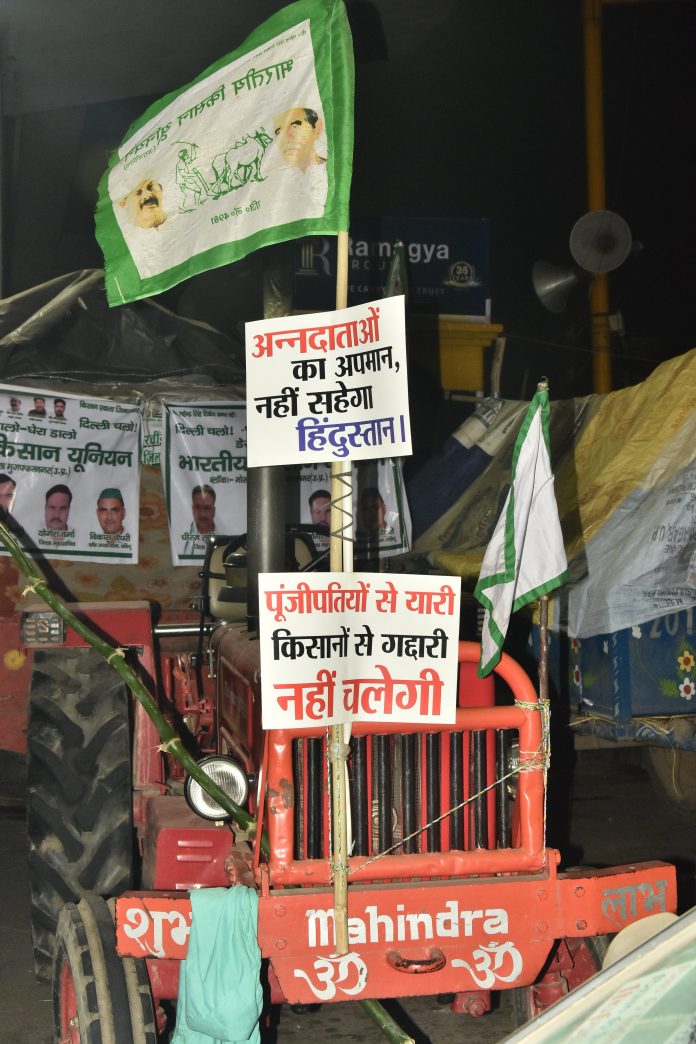By Dr Ahmed Raza
Experiencing frequent and long-lasting public agitation and protest against government policies can never be a good sign for developing countries like India as it always poses a threat and hurdles to smooth functioning of growth and developmental work. The ongoing farmers’ protest against the Centre’s farms acts must be viewed in accordance with the previously passed policies of BJP government and its political agenda since 2014. Though, we have been witnessing a number of public protests and agitations on account of NDA’s landmark policy reforms and decisions, including namely the Muslim Women (Protection of Rights on Marriage) Act, 2019, abrogation of Article 370 and Jammu and Kashmpir Re-organization Act, Constitutional Amendment Act 2019 and now centre’s farm acts 2020.
Judicial resources and dissenting voices
On one hand, right to protest against government’s decisions is explicitly mentioned in Indian constitution as Article 19(1)(a) which guarantees the freedom of speech and expression, and Article 19(1)(b) assures citizens the right to assemble peaceably and without arms. On the other hand, societal reforms through policies and decisions always happens to be a prerogative of elected government if such reforms and changes are under the purview of the constitution and required in the national interest. The ongoing farmers’ protest against central farm laws 2020 appears to be political stunt rather than for farmers’ interest as the government remains engaged in dividing the farmers between rich and poor farmers on account of dialogues and negotiations whereas demands for farmers are crystal clear. Unfortunately, India has been experiencing a lot of inconveniences and other hardships on account of mass agitation and protest as it causes road blockage and affects commuters in the area. Hence, the right to judicial resources against the government’s policies and decisions must be a way out rather than organizing a huge protest as there are numbers of constitutional provisions under judiciary which acts as arbitrator between rulers and ruled in Indian democracy.
The ongoing farmers’ protest against the new farms acts 2020 has appeared to be a huge protest as public in-conveniences must also be taken into consideration while organizing any protest. More than five months have passed, the protest could not be heard by the government willingly except delay-tactics on account of dialogue and discussion.
Therefore, citizens at the large level happen to be victims and they suffer as instability always leads to under performance in the economic system. Although, protesting may be allowed legally subject to the conditions as mentioned in Article 19(1)(3), subject to “reasonable restrictions” in the interest of public order. These reasonable restrictions may be related to security and sovereignty of the state or public order. At the same time, Article 246 of the Constitution places ‘public order’ and ‘police’ under the jurisdiction of the state. This gives each state government full legislative and administrative powers over the police. Hence, protest and public conveniences needs to be balanced as farmers protest could not be taken seriously by the ruling government rather than a plan to divide them on the basis of political affiliation and income groups. Keeping the public utilities in mind, there must be prior-application of judicial resources over organizing long protests if dissenting voices against the government emerges as the power of judicial review over the legislative action vested in the High courts under Art 226 and the Supreme Court under Art 32 of the constitution is an integral and essential feature of the constitution and formed part of its basic structure. The recent judgment of the Hon’ble Supreme Court in Amit Sahani v Commissioner of Police and Others dated 7 October 2020 on the Shaheen Bagh protest, held that “public ways and public spaces cannot be occupied for indefinite period” acknowledging the right to dissent. On the other hand, In Ramlila Maidan incident v. Home Secretary, Union of India & Ors. case (2012), the Supreme Court had already stated that every citizen of India has fundamental right to assemble peacefully and protest against the governments and which cannot be taken away by an arbitrary executive or legislative action. The right of the protester or dissenters has to be balanced following right of the commuter or common man. Therefore, demonstrations or protests need to be allowed only in designated places alone.
Keeping in mind, the deadlock between the government and farmers despite rounds of talks between the both, the ongoing farmers protest could be treated as a war of egoism as every round of talk turns to be inclusive despite passing of more than 5 months since its beginning in the month of August 2020. The NDA government remains engaged in portraying this movement as Congress-sponsored, rich-class farmers’ movement as well as lack of PAN India character. Therefore, delay tactics became one of the most important weapons in the hand of government in order to demoralize the farmers so as to continue the three farms act.
For the last few years, dissenting voices against the government’s policies could not be accommodated rather than were being defamed on account of setting a wrong narrative of anti-nationalism, which needs to be judiciously taken into consideration if Supreme Court exercises its powers of constitutional interpretation or judicial review.
Dr Ahmed Raza is an Assistant Professor &
Project Director – (MRP, ICSSR), Ministry of Education, Government of India.


